How to camp safely during the coronavirus pandemic
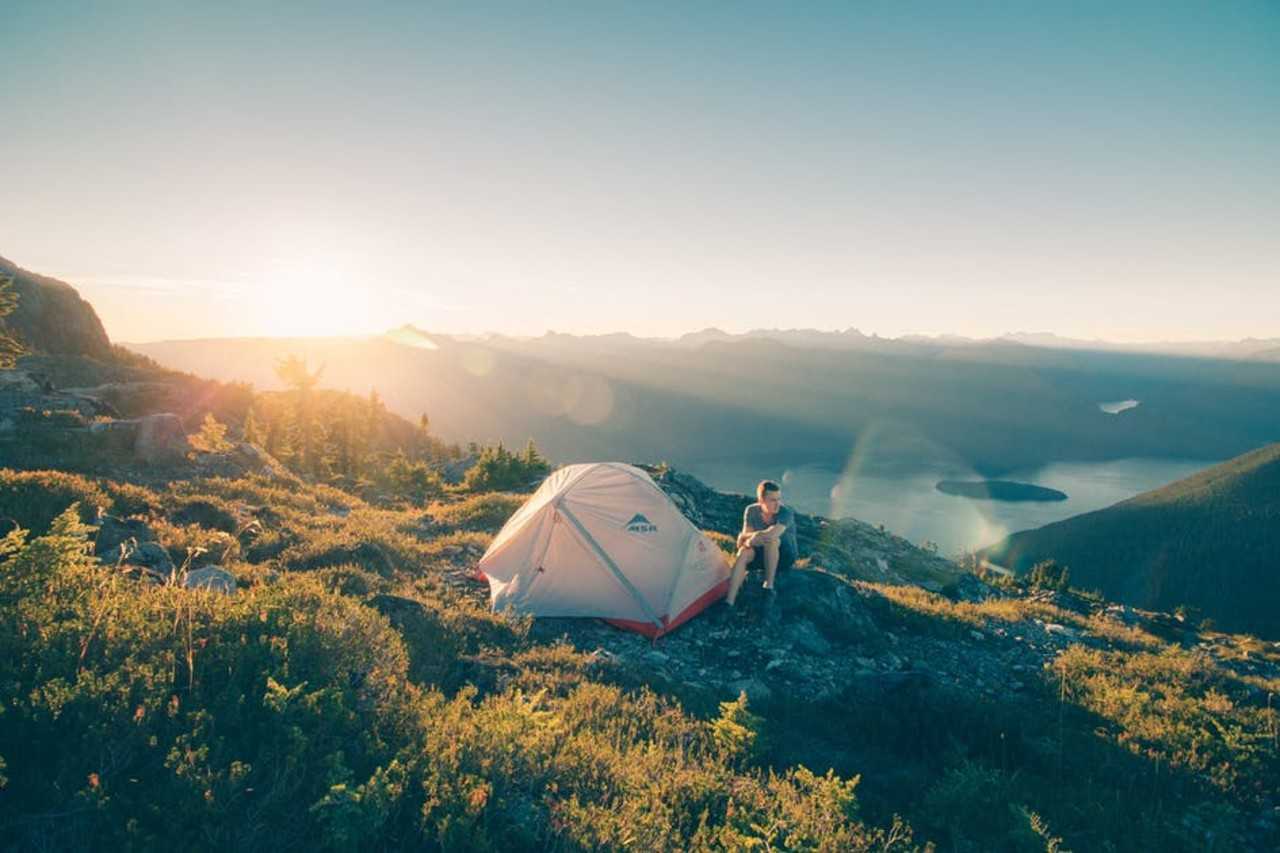 Outdoor holidays are tipped to change in the wake of COVID-19, but if you’re wondering how to camp safely during the coronavirus pandemic, you’ve come to the right place. Science says we’re much less likely to transmit the virus outdoors, so you could even argue that a well-run campsite or holiday park is one of the safest places to be.
Outdoor holidays are tipped to change in the wake of COVID-19, but if you’re wondering how to camp safely during the coronavirus pandemic, you’ve come to the right place. Science says we’re much less likely to transmit the virus outdoors, so you could even argue that a well-run campsite or holiday park is one of the safest places to be.
Sites across the country are keeping a close eye on the changing government regulations and putting into place measures to minimise the spread of infection, including by reducing capacity to increase social distancing and deep cleaning accommodation units between guests.
So how can you play your part? Follow these tips – from investing in the most pandemic-friendly camping gear to picking the most COVID-secure campsites.
How do I decide if a campsite is safe?
First, check our COVID-19 camping guide to when campsites and caravan parks will open in the UK. England, Scotland, Northern Ireland and Wales all have different guidelines, so staying updated is key.
Once you’re sure your destination is allowing overnight travel during the dates you want, have a look at our campsites, glamping options and holiday parks. Each Pitchup pick has marked its COVID-protection measures clearly, so you can browse the filters that matter most to you while deciding if a campsite is safe enough.
Here are a few to consider:
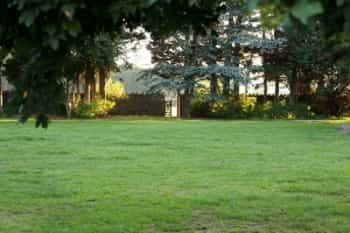
Check-in changes
Hygiene measures
Social distancing rules
It’s also worth keeping an eye out for campsites with larger pitches to make social distancing a cinch, as well as options with outdoor washing-up areas to reduce time spent indoors.
Consider travelling to lesser-known destinations across the UK too, swapping especially popular holiday hubs like Cornwall and Devon for campsites in remote locations.
How can I make sure food preparation is safe?
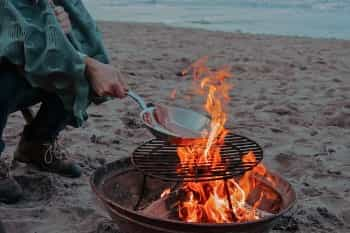
Pubs and restaurants are now open across the UK, so you’ll be able to eat out and grab a takeaway. But despite the two-metre social distancing rule being relaxed to ‘one-metre plus’, not all establishments will be able to accommodate their usual numbers.
As a backup, stock up at your local supermarket and invest in a lightweight cooker for outdoor meal making. This budget-friendly Camping Gaz stove and the ultra-petite Vango pack-away option, for example, are both lightweight (not to mention a doddle to keep clean). Think about buying boil-in-a-bag meals to make doing the dishes a little more effortless too.
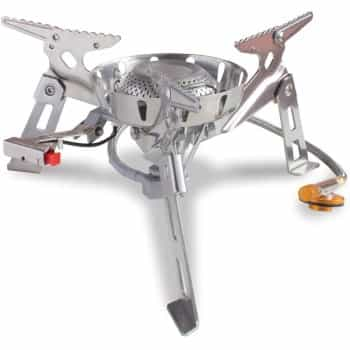
If you’d rather camp safely by spending less time at indoor sinks, grab yourself a collapsible washing-up bowl for pitchside cleaning. (Just make sure you check there’s somewhere appropriate to empty your soapy suds out afterwards.)
Some campsites also have shared barbecue and kitchen facilities, which should be regularly sanitised by staff.
What should I do about using toilets and showers when camping?
Campsites and holiday parks across the UK are now allowed to open facilities like shared toilets and shower blocks – provided they can be kept clean.
But if you’d prefer not to rely on public amenities, there are a few other options to mull over. For starters, you could boost your safety when camping by booking glamping accommodation with a dedicated toilet per unit. This comes with the bonus of bringing a bit of luxury to the staycation – a win-win, we’d say.
Rather camp in your own tent? Think about lugging a loo along for the hol. Check out options like the Thetford Porta Potti 165, which is small enough to use in a campervan or pop-up toilet tent.
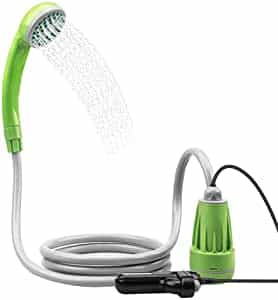 And for keeping clean? A lightweight camping shower like this one gives 45 minutes of continuous use after charging. Travellers with long hair can go a couple of extra days without washing their locks by packing dry shampoo (which, let’s be honest, is a must-have for camping whether there’s a pandemic on or not).
And for keeping clean? A lightweight camping shower like this one gives 45 minutes of continuous use after charging. Travellers with long hair can go a couple of extra days without washing their locks by packing dry shampoo (which, let’s be honest, is a must-have for camping whether there’s a pandemic on or not).
What other coronavirus camping essentials should I bring?
Lots of campsites are installing hand sanitising stations, but tote your own hand sanitiser along for days out and about as well. You’ll also want to stock up on wet wipes to clean surfaces on the go.
Some campsites will have face masks and gloves available in case you forget yours, but again, it’s also worth packing your own. Masks aren’t necessary outdoors according to government guidelines, but they’re being mandated in many indoor spaces where social distancing is trickier (check for the rules in your region).
Pack a first-aid kit too and try to take a little more care than usual to make camping safer. We all need to avoid putting unnecessary stress on local medical facilities, especially in rural areas.
What about activities? Won’t everything be shut?
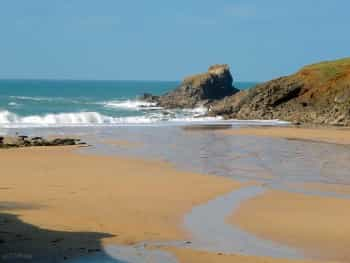
Current government regulations across the UK differ on whether indoor facilities like bowling alleys, waterparks, spas and gyms can open at the moment (see our COVID-19 dates guide for more details). But funfairs, playgrounds and amusement arcades – along with cinemas, museums and galleries – can all welcome visitors.
Nature reserves, beaches and National Trust parklands will generally all be open (check online in advance), so there’ll be plenty to see and do.
Certain activities like guided tours will also be offered in smaller groups with social distancing measures in place to help you camp safely.
The regulations change often, so keep up to date on the latest rules by bookmarking our COVID-19 guide. If you're heading abroad, see what restrictions are in place in your destination by checking our current advice page.